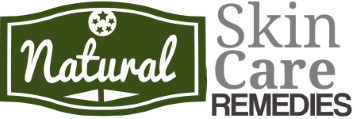More and more people complain about itchy face skin. There are many causes but many that ask should, we think, first consider whether it is a problem, in their case, from wearing a face mask.
Skin problems from wearing a face mask?
Wearing a face mask is an important way to lessen the spread of the coronavirus that causes covid-19, but if itchy face skin has coincided with mask-wearing, the mask can often be the cause. As the pandemic continues, more evidence in showing the effectiveness of masks. Furthermore, governments and places require people to wear them. Since masks are essential, it’s important to do whatever we can to overcome skincare concerns about wearing them.
According to san Francisco-based Dermatologist Dr Joyce Park, acne is one of the top skin conditions caused by wearing masks for long hours. It's become so common, in fact, that she's started calling it “maskne. ” “Acne mechanica, or ‘maskne' in this case, occurs in skin areas that are under occlusion,” she explained in a recent Instagram post.
Itchy Face Skin May be Associated with High Alcohol Use
A lot happens to your skin when you cut out alcohol.
Stress is a leading cause of hives. People often describe seeing the onset of hives as a real anxiety-provoking experience, which exacerbates the urticaria. Essential oils are great when trying to soothe skin and relieve stress. Some lotions have drying alcohols in the formulation, which in the end will not deeply moisturize everyone’s skin.

Essential oils are great when trying to soothe skin and relieve stress. Some lotions have drying alcohols in the formulation, which in the end will not deeply moisturize everyone’s skin. Do not apply the chosen essential oil directly to the skin. Instead, mix it with a carrier oil (a vegetable oil usually non-consumption purposes) according to the directions on the essential oil bottle.
Benefits of Using Lemon on Skin
Question: isn't lemon harmful to skin? can't its acids harm sensitive skin? if the author has been writing beauty articles for years shouldn't they have heard of this?
answer: lemon juice has many beauty benefits for all skin types. Lemon may cause a little irritation and sometimes redness on sensitive skin.
Answer: lemon juice has many beauty benefits for all skin types. Lemon may cause a little irritation and sometimes redness on sensitive skin. If you feel burning on your skin, dilute the lemon juice with water. Question: for the milk and lemon mask, how do you get the thickness to make it stay on your face like a mask?.
I'm Itchy from Minoxidil. What should I do?
Where it appears: often on the scalp, face, or torso first, then spreading to the entire body. What it looks like: small red bumps at first, which quickly become clear, fluid-filled blisters on a pink base; these eventually become dry brown crusts or scabs. New waves of itchy blisters often emerge as the illness progresses.
When I was adolescent I often get affected by lukewarm water while taking bath in winter. My skin used to get rough patches and gave itching effect after a bath. I started sneezing, even though not sick, and my skin got itchy in strange spots. My eyes would water for no apparent reason, and I occasionally face trouble going out into the sunlight.
If you are prone to dry, itchy and inflamed skin, your diet may be to blame. Find out what foods may be causing your skin irritation.
Reasons You Have Dry Itchy Scaly Skin and How to Get Rid of It
Dry skin around eyes is typically characterized by a flaky, scaly and usually itchy patches, which are sometimes peeling. Depending on the trigger, it might appear red and irritated. It may also show up under eyes, on eyelids, mouth or nose. This post presents facts, pictures, causes, signs and symptoms of dry skin around eyes.
Do you often feel itchy on your skin all the times? and the itching skin is a very common trouble which can affect everybody. It is annoying to disrupting daily activities as well as sleep. Plus, itching skin is caused by some reasons such as insect bites, dry weather, skin infection, soaps, detergents, allergic reactions, and even medications.
Although pruritus can occur due to visible conditions, such as psoriasis or an insect bite, it might also indicate the presence of an underlying condition.
This article will look at the different causes of pruritus on the face, as well as some options that may provide relief.
Dry skin on the face can be a cause of pruritus. A person might have dry skin on their face for many reasons.
If pruritus occurs due to dry skin, a person can moisturize to ease the itching. The purpose of a moisturizer is to prevent water loss and add water to the skin.
Moisturizers contain different ingredients that serve different purposes. For example, occlusive moisturizers containing petrolatum prevent water loss from the skin by forming a barrier.
Humectants, such as urea and glycolic and lactic acids, attract and bind water to hydrate the skin. via medicalnewstoday.com
To help care for your skin during the coronavirus pandemic and beyond, the AAD recommends these tips from board-certified dermatologists.
You can get a rash from poison ivy any time of the year. If you think you've touched a plant, acting quickly may prevent a rash.
To ease your discomfort, follow these dermatologists' tips.
General Itches
The list of skin conditions that can cause intense itch is long and includes: Atopic dermatitis Chickenpox Dyshidrotic eczema Folliculitis Hand-foot-and-mouth disease Hives Psoriasis Neurodermatitis Ringworm Seborrheic dermatitis Shingles How to get relief: To get relief, you must know which skin condition you have. The best way to get an accurate diagnosis is to see a board-certified dermatologist. If you have been diagnosed with atopic dermatitis or psoriasis, relieving the itch can be a challenge. To help patients get relief, here are what dermatologists recommend: 8 ways to relieve itchy psoriasis What can relieve itchy eczema?
For many people, the only sign of skin cancer is a new or changing spot on their skin. Sometimes, that spot also itches and can be the only reason a person notices the spot. How to get relief: See a board-certified dermatologist and find out if you have skin cancer. If you have skin cancer, treating it can get rid of the itch.
Warning Signs of a Disease Inside Your Body
A long-standing itch can be a sign of several diseases These include:
- Blood disease
- Diabetes
- Kidney disease
- Liver disease
- HIV
- Overactive thyroid gland itch.
Itching is common in people who have a disease that affects their blood, such as Hodgkin's lymphoma or cutaneous T-cell lymphoma. It can also be a sign of advanced kidney disease and often develops in people who are close to needing dialysis or currently receiving dialysis. In these people, the itch can be widespread and especially intense on the back, arms, and legs.
Itch is also common in people who have liver diseases, such as hepatitis C, cirrhosis, or an obstructed bile duct. When the itch is a sign of liver disease, the itch often starts on the palms and soles and spreads to other parts of the body. How to get relief: Getting an accurate diagnosis and treatment may relieve the itch. A dermatologist often plays a key role in diagnosing these diseases because itch can be the only symptom. Here's how one woman's appointment with a board-certified dermatologist turned into a life-saving diagnosis at, Chronic itching triggers a hepatitis C diagnosis. via aad.org
Itchy Skin on Face
You may want to visit a healthcare professional to help you determine why your face is itchy and to help you develop a natural skincare treatment. Listed below are some factors that may contribute to your itchy or irritated skin, and steps you can take that may help give you some relief.
Many substances you ingest may cause an allergic reaction – the most common food-induced allergies come from milk, egg, peanuts, tree nuts, fish and shellfish. Other allergies can include reactions to dust or pollen. If you think you’re suffering from an allergic reaction, it may be worth visiting your healthcare professional, however, treatments, available in most pharmacies, can help with itching.
As the face is constantly exposed to the elements, it makes sense that it can be particularly prone to itchiness and irritation. Environmental factors that can set off a reaction include extreme temperatures or over-exposure to the sun, causing a rash known as ‘prickly heat’ or miliaria rubra, or sunburn. Always use a sunscreen with an SPF 30 or above, and avoid the sun during the hottest times of the day.
Reactions to cosmetics have been increasing, with skin, hair, nail and eye cosmetics all to blame. These reactions can range from irritations to a full allergic reaction, with the face being the most commonly affected area. If you have sensitive skin, test new products before you use them, and if you suspect you’re having a reaction to a particular product, you may want to discontinue use. via bepanthen.com.au
Dry Skin
Usually, dry skin happens because of things in the environmental, like the weather.
Harsh Detergents or Soaps
Soaps, shampoos, and detergents are made to get rid of oil on your skin. That means they can also dry it out by stripping out all the moisture. Heat: Any heat source, from space heaters and central heating to fireplaces and wood stoves, can lower the humidity in a room and make your skin dry. Hot showers or baths: Taking long, hot showers or soaking in a hot bath could cause your dry skin.
Other Skin Conditions
People with certain conditions, like psoriasis or eczema, can also get dry skin.
Swimming Pool Induced Itchy Skin
Chlorine, a chemical that keeps some pools clean, can dry out your skin. Weather: During the winter, humidity and temperature usually drop. This can make your skin drier.
Although dry skin is common and can affect anyone, there are some things that make you more likely to get it. via webmd.com
Other Possible Causes
Dry, itchy skin is a common side effect of chemotherapy, radiation, targeted therapy, and stem cell transplants. It helps to avoid skin irritants like harsh soaps, perfumes, and detergents and to keep your bathwater warm rather than hot. And remember to moisturize soon after you bathe. Talk to your doctor about other ways to manage itchy skin linked to your treatment.
Anything that grows on or near the spinal cord or brain stem can lead to “neuropathic” itch. It happens when the affected part of your nervous system misfires. Your doctor can suggest ways to ease the itching and keep yourself from scratching too much. via
Iron Deficiency
Ask your doctor about how to avoid foods and medications that make it harder to absorb iron, and find out if supplements are a good idea for you.
It's a blood cleaning process that can make your skin itch in one spot or all over. Too much or too little dialysis might upset the balance in your blood. Also, it takes extra water from your body, so if you don't drink enough, your skin could dry out and trigger itchiness. And it sometimes causes too much phosphorus in your blood, which can bind to calcium and cause itching.
Check with your doctor if you notice this symptom. via webmd.com
Itchy Face Skin and the Coronavirus Pandemic
With the growing coronavirus pandemic, we have all been advised not to touch our faces. But did you know that you should avoid touching it even when your facial skin feels itchy or irritated? Itching on the face is also known as Pruritus
An itchy face can be caused due to various factors like dry skin or an allergic reaction to something you ate, contact with a plant or sunburn. But fret not, there are many ways to take care of the problem besides medication. We tell you what to do and what not to when your face is itching.
The information on this website is intended for general informational purposes only and does not address individual circumstances. It is not a substitute for professional medical advice, diagnosis or treatment and should not be relied on to make decisions about your health. Never ignore professional medical advice in seeking treatment because of something you have read.




